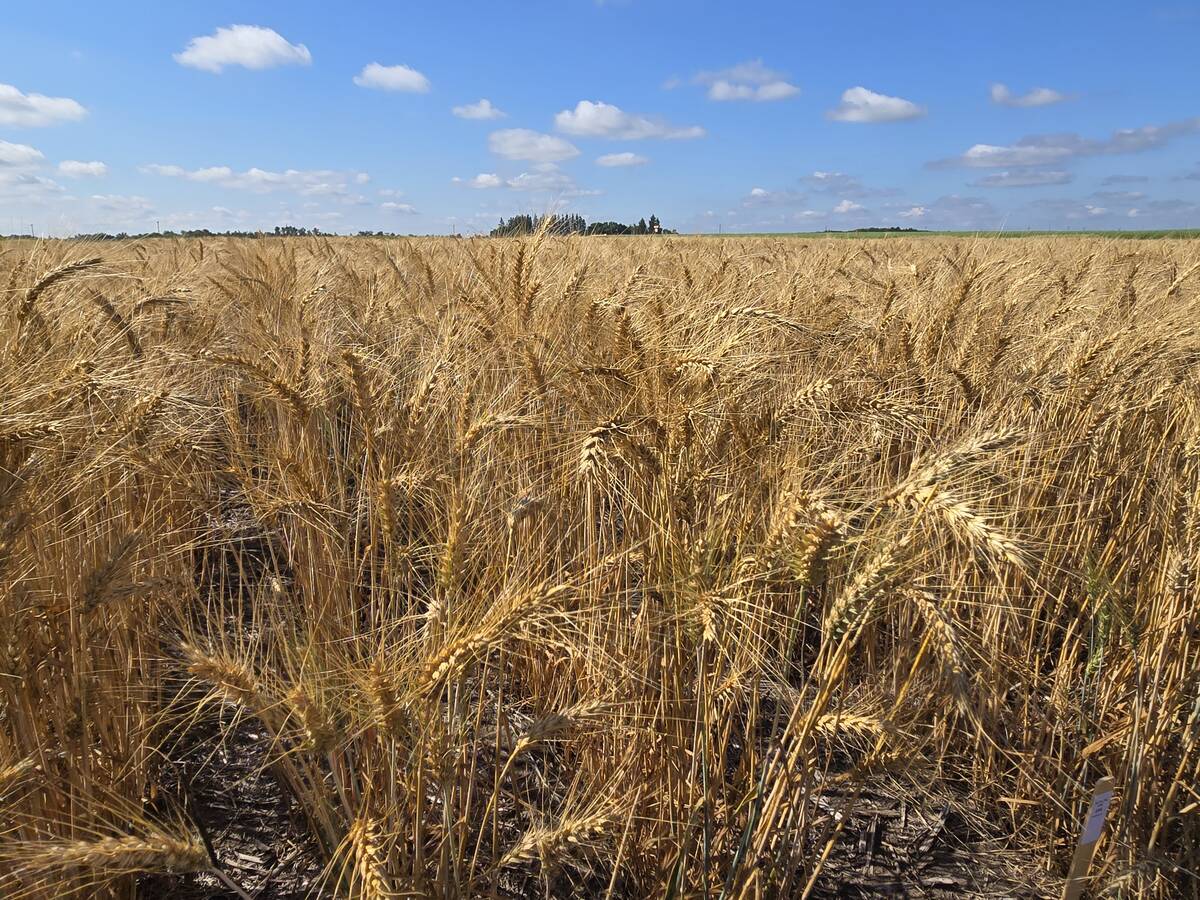MAIDSTONE, Sask. – Scott McClelland believes horses raised on Canadian farms make good ranch and police horses because they are hardy and many have already worked for a living.
“They’re not babied,” said McClelland, who trains and sells horses at his family farm in west-central Saskatchewan.
Some of his 50 Quarter horses were born and raised here and one day will herd cattle and do farm chores. Other selected ones are headed for public service in some of the 2,400 mounted police forces in Canada and the United States.
Read Also

Fall rye hits record high in Manitoba
Winter cereals 2025: More Manitoba fields grew fall rye in 2025 than ever before, but winter wheat slipped and, while spring stand survival was good, drought took its toll
McClelland has supplied horses to police forces in Edmonton and Portland, Oregon.
The police horse market is more lucrative for McClelland but he pre-fers not to put all his eggs in one basket so he also offers horses to ranches and recreational riders. Prices vary but McClelland attempts to recoup 15 percent above his costs on each horse sold.
He said a lot of people expect horses to be like motorcycles, but they are intelligent, highly skilled animals.
“If they’re not ridden by a horseman they will take advantage of that,” said Scott.
“We will not sell a horse to a rider not capable of using it.”
He cited strong market opportunities for recreational horses in Alaska, where there is new wealth from the oil industry.
McClelland exported eight horses in the last eight months, with three police horses now in training.
He launched the business four years ago, building fences, seeding land to hay for forage and establishing water supplies. He grows feed on three quarters of land and buys oats.
This past year, he added a $100,000, 18 x 45 metre indoor riding arena.
The farm has been in the McClelland family since 1905.
McClelland’s father, Vern, said their land base was not sufficient to support grain farming for him, his wife Kitty and their two sons, Scott and Grant, so the family created a business plan and decided to incorporate.
In addition to easing the intergenerational transfer of the farm, Vern said it also supported his management consulting business, Scott’s “value-added” horse training operation and Grant’s oilfield construction business in Lloydminster.
“We wanted to transfer land between generations and support everyone’s vision for the future,” said Vern.
At 24, McClelland has spent his whole life around horses. A self-taught horse trainer, he bases training on a set of criteria buyers have indicated they want in their animals.
“It was a lot of trial and error and figuring out what people want,” said McClelland, who has viewed first-hand the work of police horses.
They must be able to corral a suspect and allow the officer to apply handcuffs from atop the horse. They must have night vision to ride along a waterfront at night, even run through a carwash after a suspect if necessary.
“A police horse has to know how to do everything,” said McClelland.
He and Vern run them through their paces daily, pushing balls into walls to simulate moving crowds of people and banging walls and running through a ticker tape to get the horse used to distractions.
“We want the horse to think their way through a situation,” said Scott.
He will spend 100 days of training on a horse to get it ready to sell and rides up to 10 different horses a day.
He offers two kinds of horses- three to four year olds ready to work on a ranch or in a feedlot, or mature quiet, experienced geldings for police work that possess both aggression and calmness.
The McClellands, who believe they are the only private trainers of police horses in North America, said it’s a hard market to crack. They advertise mainly by word of mouth and through their website, also advertising on police websites.
“A big problem in dealing with police is getting them to trust you,” said McClelland.
Les Burwash, manager of horse programs with Alberta Agriculture, said while costs to produce trained horses on the Prairies are low, other trainers likely have not entered such businesses because markets are small. He estimated most mounted forces would have an average of four horses each.
Burwash said most horse buyers are looking for much the same thing – sound horses with great minds that are trainable and safe.
“The rider is the boss, whether it’s the police service or you or me riding down the trail or ditch,” he said.
Kevin Fald, a constable with Edmonton Police Service’s mounted unit, is pleased with the performance of two horses from the McClelland farm.
They were part of a pilot project this summer reintroducing horses to the force where they have not been seen in active service since 1938. They were used for patrolling parks and residential areas, in addition to special events.
Fald, a 4-H project leader and riding instructor, said the horses were not familiar with city life at first but adapted well to the traffic and noise within a month.
Comparing dog and horse units, he said dogs are natural hunters and are well-suited to police work. Police horses on the other hand are put in stressful situations that farm horses would run from.
He said the horses give police good visibility, especially in large crowds, where the pair towers above the people. “They give you a presence you don’t get when you’re on the ground,” he said. Besides deterring crime by their presence, they also play a public relations role.
“It takes a horse to make a policeman more approachable,” said Fald.














